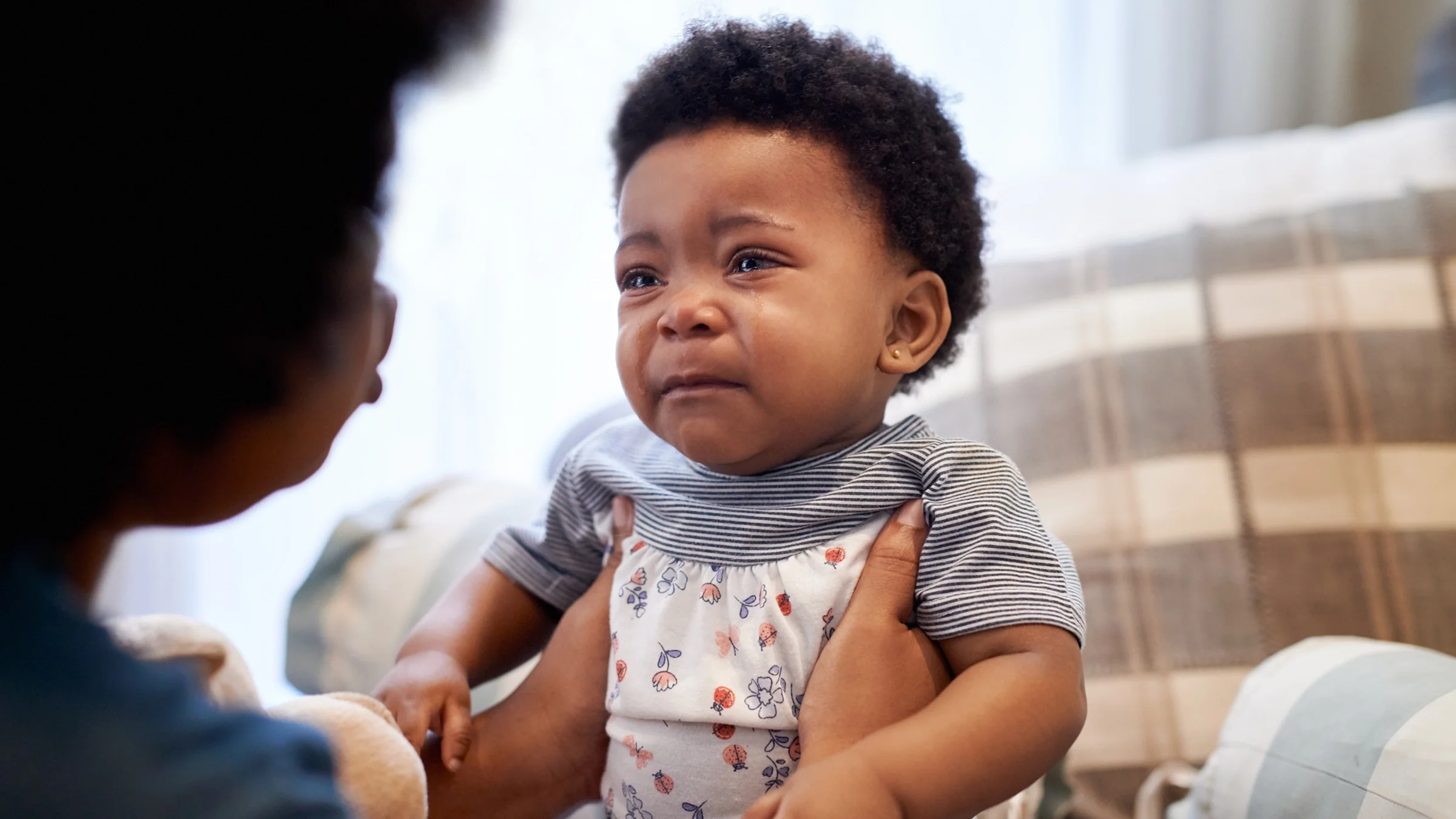Key takeaways:
Gripe water is an over-the-counter herbal remedy used to treat colic and digestive problems in babies.
While some parents find that it offers their baby relief, it has not been proven to be effective at relieving symptoms of colic.
If you choose to give your baby gripe water, make sure to choose a formulation that has no alcohol, sugar, or sodium bicarbonate.
If you have ever taken care of a crying, fussy baby, chances are, you may have heard of gripe water. Some say it’s a wonderful natural remedy for colicky babies, while others say that it’s an unproven remedy that’s best avoided.
So which is it? Here is a closer look.
What is gripe water?
Gripe water is an over-the-counter herbal supplement. The liquid is mostly used to help ease discomfort in colicky babies or to help relieve digestion problems in babies.
Search and compare options
There are many different formulations of gripe water, which have been sold around the world for over a century. Older formulations contained alcohol and sugar, while modern products do not include alcohol and usually use agave syrup or glycerin instead of sugar. The ingredients in gripe water depend on the brand.
Some contain sodium bicarbonate and most contain some type of sweetener along with a mix of the following herbs:
Ginger
Fennel
Dill
Chamomile
Lemon balm
Licorice
Cinnamon
Is gripe water safe for babies?
It depends. Older formulations used alcohol, and these are unsafe for all babies.
It’s important to note that gripe water is considered a dietary supplement — so it doesn’t need to have FDA approval. But, the FDA keeps an eye on supplements like gripe water for possible risks.
And, it has generally deemed it safe enough to remain on the market, with a few notable exceptions:
In 2007, the FDA recalled a brand of gripe water after a 6-week old baby developed a parasite infection from a contaminated sample.
In 2019, a brand of gripe water was recalled due to the presence of an undissolved ingredient, which could make it hard for infants to swallow.
Read more like this
Explore these related articles, suggested for readers like you.
The American Academy of Pediatrics does not have an official position on gripe water: There is no recommendation promoting it or a formal declaration saying to avoid it. Given that there is a possible risk for contamination or rare case of infection, most pediatricians recommend trying other remedies before using gripe water.
Still, Poison Control advises against herbal supplements for infants altogether — including gripe water. Only if needed, do they recommend talking with a pediatrician first.
At what age can you start giving gripe water?
The minimum age for most store-bought brands is 2 weeks. Most pediatricians say that it’s best to wait until 1 month of age to make sure that the baby’s immune system, kidneys, and gut can start to respond to impurities in gripe water.
It’s also helpful to know that most babies outgrow colic at around 4 months old. So, it’s not likely that you’ll need to give your baby gripe water beyond that.
Why is gripe water thought to be beneficial for babies?
Many parents find that gripe water can give babies relief from pain caused by:
Colic
Gas
Teething
Hiccups
Constipation
Diarrhea
That said, there is no evidence that gripe water is effective in treating colic or the above symptoms.
In fact, one study that looked at over 300 infants found that those who received gripe water were more likely to have constipation and vomiting than babies who did not receive it. Giving gripe water did not seem to prevent colic symptoms, either.
How to choose gripe water that is safe for your baby
If you feel your baby has persistent symptoms of gassiness, colic, or digestive discomfort, you can consider giving your baby gripe water to see if it can offer comfort. Here are some tips of what to avoid and what to seek to help maximize the benefit and limit risk.
Avoid gripe water if it has the following ingredients:
Alcohol: This is probably not a surprise, but alcohol is unsafe for a baby’s developing brain.
Sugar or sucrose: This can be harmful to babies developing gums and raise the risk for cavities down the road. Plus, it might create an association for being soothed with sweets.
Sodium bicarbonate: In rare cases, if this is given in large doses, this can lead to milk-alkali syndrome which can cause dangerously high levels of calcium in the blood.
You should look for formulations that:
Contain fennel: Of all the herbal ingredients, fennel seed has the most evidence backing up its usefulness. Fennel seed has been shown to be effective in lowering the symptoms of colic in a study of over 1000 parents surveyed and in a small randomized controlled trial. Even better, no side effects were found.
Are made in the U.S.: This is a good way to make sure that formulations do not have alcohol and are more safely manufactured. But, keep in mind that even gripe water made in the U.S. is not checked by the FDA.
Does gripe water have any side effects?
Besides the risks associated with alcohol, sugar, or sodium bicarbonate, in rare cases, babies can possibly be allergic to other ingredients in gripe water. This can lead to:
Hives
Vomiting
Itching
Watery eyes
Since there is no safety data around how much gripe water is too much, it’s best to talk with a healthcare provider first. They may recommend the minimum dose. Be sure not to exceed the maximum number of doses listed on the product.
What’s more, some healthcare providers feel that early introduction of liquids that are not breastmilk may make it harder to keep up with breastfeeding. Babies might get used to the sweet taste and then could be more likely to reject breast milk.
The bottom line
Fussiness and colic in a young baby can create a lot of distress for parents who are eager to find solutions to help their crying baby. Although gripe water has been used around the world, studies have not found it to be effective.
If you want to try gripe water for your baby, it’s important to avoid possibly harmful ingredients like alcohol, sugar, and sodium bicarbonate. And remember, babies typically outgrow colic by about 4 months of age.

Why trust our experts?



References
Alexandrovich, I., et al. (2003). The effect of fennel (Foeniculum vulgare) seed oil emulsion in infantile colic: A randomized, placebo-controlled study. Alternative Therapies in Health and Medicine.
Gavish, L., et al. (2022). A real-world evaluation of an herbal treatment for infantile colic reported by 1218 parents in Israel. Journal of Pediatric Nursing.
Infection Control Today. (2007). FDA warns consumers about the risk of cryptosporidium illness from Babys Bliss gripe water.
Jain, K., et al. (2015). Gripe water administration in infants 1-6 months of age - a cross-sectional study. Journal of Clinical and Diagnostic Research.
Kinjal, M., et al. (2020). Analysis of content and in-vitro effect of sodium bicarbonate in gripe water administered to infants. Journal of Biochemistry and Analytical Studies.
Lucassen, P. (2010). Colic in infants. BMJ Clinical Evidence.
National Capital Poison Center. (n.d.). Don’t give herbal supplements to infants.
U.S. Food and Drug Administration. (2019). Kingston Pharma, LLC issues voluntary recall of all lots of DG™ baby gripe water due to undissolved ingredient, citrus flavonoid.

















